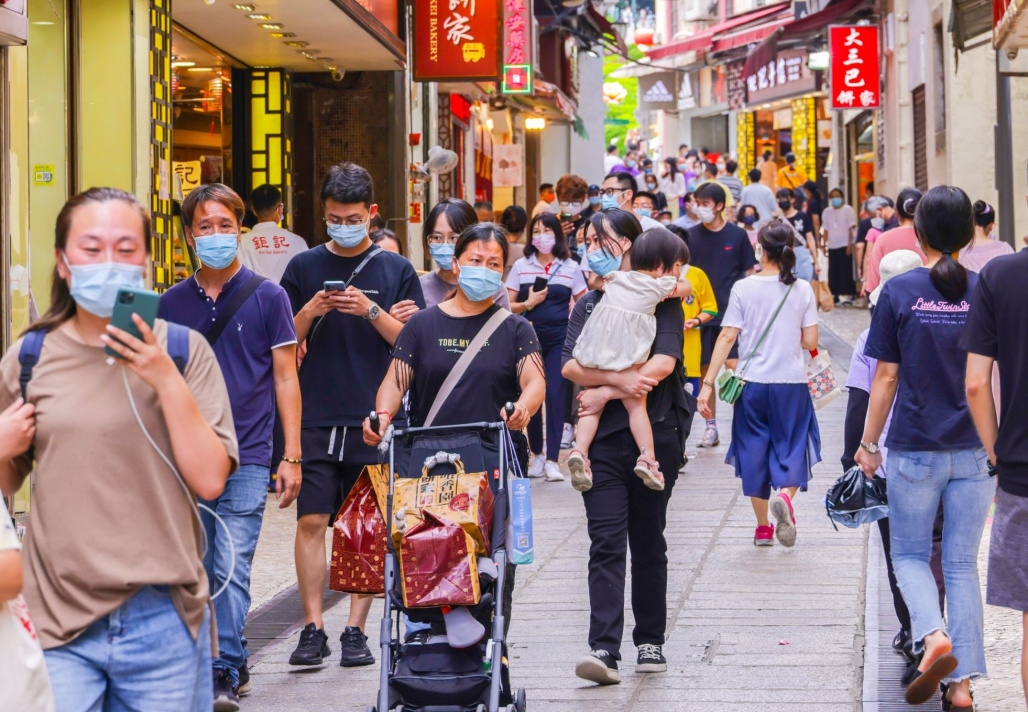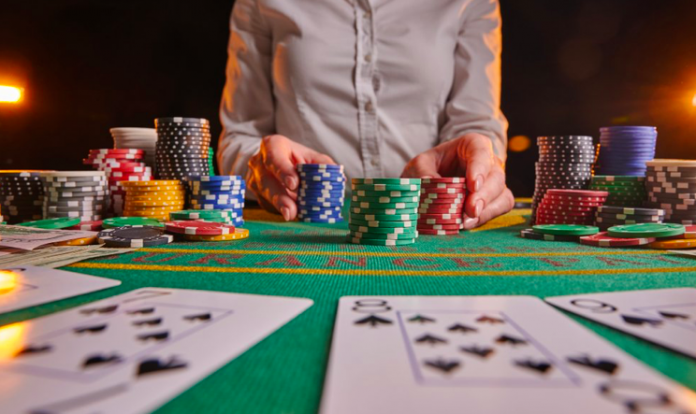
António Lobo Vilela is a lawyer based in Macau and the author of the Macau Gaming Law Book
On November 15, the Chief Executive presented the Policy Address (LAG) for 2023 to the Legislative Assembly.
The presentation of the LAG is the pinnacle of the SAR’s political life. This time was carried out against the background of unprecedented challenging economic times that the (still young) Macau SAR is going through, well evidenced by the economic indicators and most recent statistical data.
Gross gaming revenue (GGR) generated in the first ten months of the year (MOP 35.7 billion / USD 4.5 billion) fell back to near 2004 levels (MOP 34.1 billion / USD 4.3 billion) when the actual competition started with the opening of Casino Sands on 18 May. That amount (on which the Macau SAR collects 39% as special gaming tax) is about half (49.5%) of the GGR in the same period of 2021 (and 14.5% of that of 2019) and is short of the MOP 130 billion (USD 16.3 billion) forecasted in the MSAR’s budget for 2022. Put into perspective, between January and October, Macau casinos generated the same as in the first 35 days of 2019. The annus horribilis of 2022 registered the lowest monthly GGR ever recorded since market liberalisation in 2002 (MOP 398 million / USD 49.8 million in July) and the first time a monthly threshold of MOP 700 million (USD 87.5 million) was not met.
Macau casino operators’ combined EBITDA fell in the third quarter of the year by about USD 558 million (MOP 4.5 billion). The local gaming industry’s debt stood at around USD 23.3 billion (MOP 187.5 billion), well above the USD 4.8 billion (MOP 38.6 billion) recorded at the end of 2019.
The unemployment rate was 5.2% in the third quarter. It was 2.5% and 3.9% in the same quarters of 2019 and 2021, respectively. The median monthly income of the employed population has been gradually falling. In the third quarter of the year, it was MOP 14,000 (USD 1,750), the exact figure recorded in the fourth quarter of 2014. In the same quarter of 2019 and 2021, the medium was MOP 17,000 (USD 2.125) and MOP 16,000 (USD 2,000), respectively.
The real GDP growth rate has remained negative since last year. In the third quarter, it was negative by 33.4 percentage points, partly due, according to the Economic and Technological Development Bureau, to the drop in “gaming services exports.”
In the first nine months of the year, 75 suicides were recorded (in the entire year of 2019, there were 67, in 2020, 74, and in 2021, 60). Considering the official figure of Macau’s total population (671,900 people), the suicide rate per 100,000 population is 11.16% (i.e. 11.16 suicides per 100,000 population). According to the standards of the World Health Organization, a suicide rate of 13% is considered high.
Not counting the pennies, the Macau SAR’s fiscal reserve shrank 12.5% (or MOP 80.3 billion / USD 10 billion) between January and September to MOP 562.9 billion (USD 69.7 billion). In February 2021, it stood at MOP 663 billion (USD 82 billion).
As of October 31, Macau had 4.9 million visitors. They were 33.4 and 6 million in the same period of 2019 and 2021, respectively. The average daily visitor arrivals – 16,800 people represent a decrease of 85% (113,600 people/day) and 19% (20,700 people/day) compared with 2019 and 2021, respectively.
In October this year, 786 commercial flights arrived in Macau. In 2019, there were 5,972, and in 2021, 1,062, a decrease of 86.8% and 26%, respectively.
The online visa system for mainland residents to travel to Macau, which restarted on November 1 to revive Macau’s economy, has had no effect. According to Morgan Stanley, the Baidu Search Index (which tracks the incidence of keywords in the Baidu search engines by Chinese users) shows that the search volume for ‘Macau IVS’ did not increase and, in the case of Guangdong province, decreased.
At the same time, a new COVID-19 outbreak erupted in mainland China. In Macau, where the fourth dose is available, the COVID-19 vaccination rate continues to grow slowly. Only around 90% of the population is inoculated with two doses (complete vaccination) (and about 50% with three or more doses).
This was the “cocktail” when the LAG 2023 (with the motto ‘Joining forces, Advance with stability’) were presented.

From a formal point of view, the 2023 Policy Address report is shorter (147 pages in the Portuguese version, roughly half) than previous reports, more succinct, and without much repetition. From a material point of view, it does not show any light at the end of the tunnel. And the success of most of the measures announced presupposes a (quick) exit from the ‘zero-economy’ stage into which Macau was plunged.
Like in previous years’ LAG, gaming is treated as a fait divers, an irrelevant economic activity. Among the 44,141 words in the Portuguese version of the report, “gaming” appears (only) 41 times. If one excludes its use in the name of concessionaires, laws, machines or promoters, the count drops to 17, of which nine refer to “non-gaming elements.” The word “casino” is mentioned (just) 14 times (4 if its use in the names of concessionaires and laws is not considered). Even the word “tourism” only appears 51 times.
Except for the (two) projects included in the “calendar of major governmental actions” in the area of economy and finance, the report dedicates explicitly to the gaming industry one paragraph in part I (on the “[r]eview and assessment of the governmental action for the year 2022”) and a few more in part II (about the “[o]rientation and relevant points of the governmental action for the year 2023”). And that’s it!
Extracting as much juice as possible, the Macau government anticipates that with “the successful completion of the public tender for casino gaming concessions, Macau’s integrated tourism and leisure industry will enter a new period of development with opportunities.” It believes that the amendment to the Gaming Law and the granting of the new concessions will result in “an improvement of the gaming industry,” the promotion of its “healthy, regulated, orderly and sustainable long-term development,” as well as the opening up of “new markets of foreign visitors,” boosting “the enrichment of non-gaming elements, namely in the areas of conventions and exhibitions, entertainment and shows, sporting events, culture and art, health care, thematic entertainment, gastronomic city, community tourism and maritime tourism.”
On the other hand, the Macau government, keen as mustard to change the economic fabric of Macau overnight, jumped the gun and outlined a target to attain “60% of GDP from non-gaming industries,” as the “gaming sector will be oriented to promote, in a more pragmatic way, the synergistic development between gaming and non-gaming industries.”
Finally, as a measure “for the benefit of the population,” a “guarantee of priority access to employment for residents” is given, with the Macau government ensuring “the stability of employment of workers in the gaming sector after the new award of concessions for the operation of the gaming industry and the maintenance of the number of local workers in the middle or senior management positions of tourism and leisure enterprises [probably the new fancy name casino operators will be known as] at a percentage of not less than 85%.”
On the “calendar of major governmental measures” in the area of economy and finance, 38 projects are listed. Only two are gaming related.
The first gaming related – which ranks 21 on the list – is entitled “Ensuring the orderly and healthy development of the gaming sector under the law” and is divided into three parts. The first part comprises the supervision of compliance with legal and contractual obligations by casino operators, “namely regarding (…) the investment of non-gaming elements in the community,” and the “rigorous appreciation, supervision and approval of requests for the allocation of gaming tables and machines.” The second part provides for “continued on-site supervision of casino operations.” Lastly, the third part refers to the monitoring and supervision of the suitability of “persons or entities and compliance with legal and contractual obligations, carrying out specific assessments if necessary.”
The second project (22nd in the list) concerns the “promotion of responsible gambling,” referring that casino operators will be required to “implement measures to promote responsible gambling” (probably to redirect their action plans to what the Gaming Law, as amended, dictates).
Finally, among the 16 bills that the Macau government intends to submit to the Legislative Assembly in 2023, only one relates to the gaming area: “fighting the crime of illegal gambling” (presumably a legislative initiative to replace the obsolete and never amended Law 8/96/M, which approved the illegal gambling framework 26 years ago). Curiously, it does not include the amendment to the legal framework for granting credit for casino gaming or betting (Law 5/2004), which the Macau government announced last April (in writing) to the Legislative Assembly that it intended to revise “to enhance the regulatory standards regarding the granting of credit for casino gaming or betting.”
Considering the way authorities address the city’s core industry, Macau has a business that it seems not to like!
























